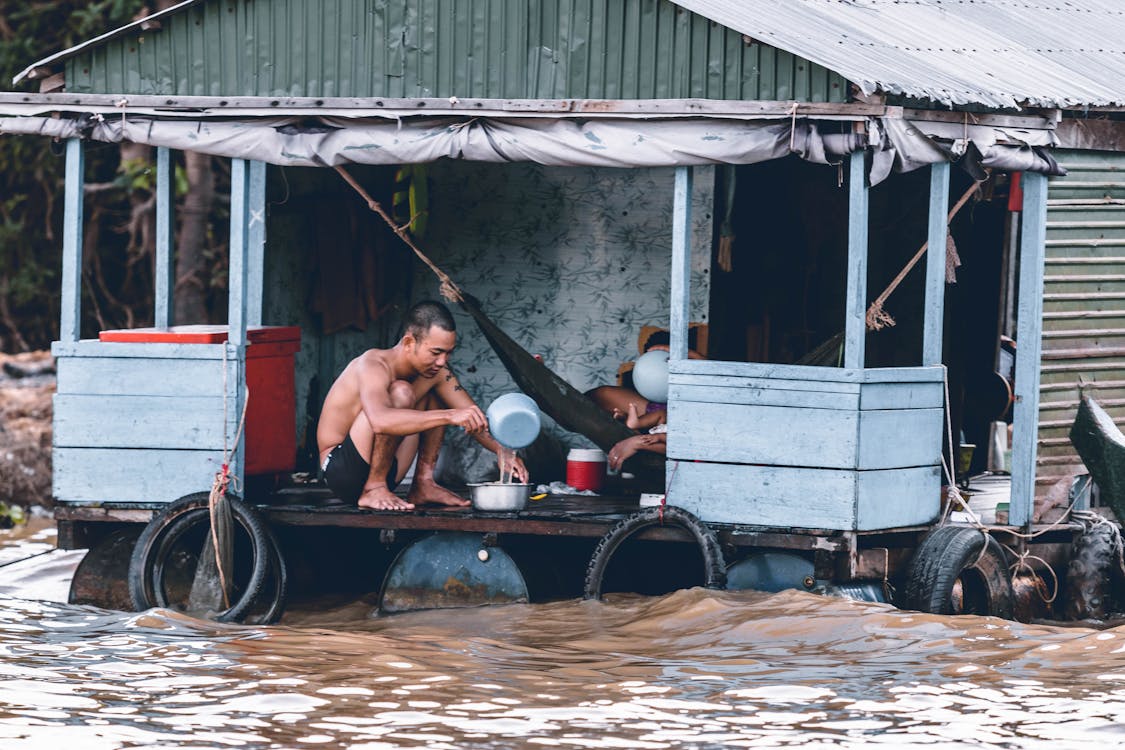Cities in Russian Urals, west Siberia brace for worst floods in decades
Apr 09, 2024
Moscow [Russia], April 9: The Russian city of Orenburg, near the Kazakh border, braced on Monday for flooding not seen in decades, as officials evacuated locals to escape rising rivers in the Urals and western Siberia. Moscow declared a federal emergency on Sunday over floods in the Orenburg region, where the Ural river left much of the city of Orsk covered in water, forcing thousands to leave their homes.
The river is now reaching dangerous levels in the regional capital of Orenburg, a city of 550,000 people. The Kremlin spoke of a "critical" situation on Monday, warning that the floods had "possibly not reached their peak". Over the weekend, it said floods were also "inevitable" in western Siberia's Kurgan and Tyumen regions. Thousands of people have already been evacuated.
Emergency services said on Monday that over 10,000 residential buildings had been flooded, mostly in the Urals, the Volga area and western Siberia. They warned of a "rise in air temperature, active snow melting and the overflow of rivers". Much of the city of Orsk was under water after torrential rain caused a nearby dam to burst.
Orenburg region authorities said that while the Ural river "went down by nine centimeters" in Orsk, water levels in the city of Orenburg were rising fast. "In Orenburg, in a day there was a rise by 16 centimeters to 872 centimeters" for the water level, the regional government said. The mayor of Orenburg, Sergei Salmin, called on residents in flood-risk zones to leave immediately. "The water can come at night. Do not risk your lives," he said on social media, warning that water levels would surpass danger marks. "Do not wait for that. Leave right now."
Salmin told Russian television that Orenburg had not "seen so much water" in decades. "The highest mark was in 1942. That was 946 centimetres," Salmin said. "Since then there have been no floods. This is unprecedented." President Vladimir Putin ordered a government commission to be established on the floods. His spokesman said that Putin did not plan on visiting the flooded zone but that he is being briefed on "nature anomalies" in real time.
'No time for convincing'
Salmin said authorities had evacuated 736 people in Orenburg as they expect the water to rise further. Over the weekend he warned of forced evacuations if people did not cooperate, saying: "There is no time for convincing." Russia's weather monitor Rosgidromet said it did not expect the flood in Orenburg to peak until Wednesday and warned that many districts of the city would be affected.
The Ural river flows through Orenburg and into Kazakhstan, where President Kassym-Jomart Tokayev said the floods were one of the worst natural disasters to affect the area in decades.
Aerial images of the city of Orsk showed just the top floors and colorful roofs of houses visible over brown water. In the city center water reached the first floor of buildings. After evacuating over 6,000 people in the Orenburg region, authorities also began relocating some residents of the Siberian city of Kurgan near northern Kazakhstan, home to around 300,000 people, where the Tobol river is expected to rise.
Emergency services in Kurgan said 571 people were moved away from areas expected to be flooded. Local authorities said around 100 rescuers had arrived as reinforcements in the western Siberian region from the Urals to prepare for the floods. Emergency authorities also warned that the Irtysh river was "very likely" to flood parts of Tobolsk, one of Russia's oldest Siberian cities. Putin, who has been a vocal climate skeptic for much of his rule, has in recent years ordered his government to do more to prepare Russia for extreme weather events. The country has seen severe floods and fires in recent springs and summers. - AFP
Source: Kuwait Times








